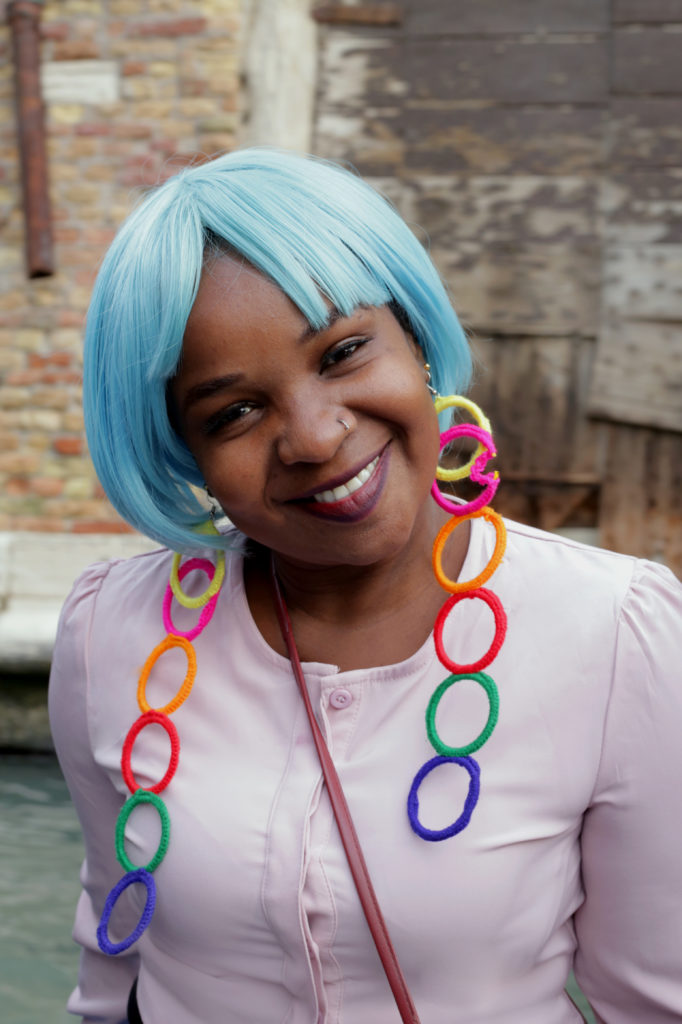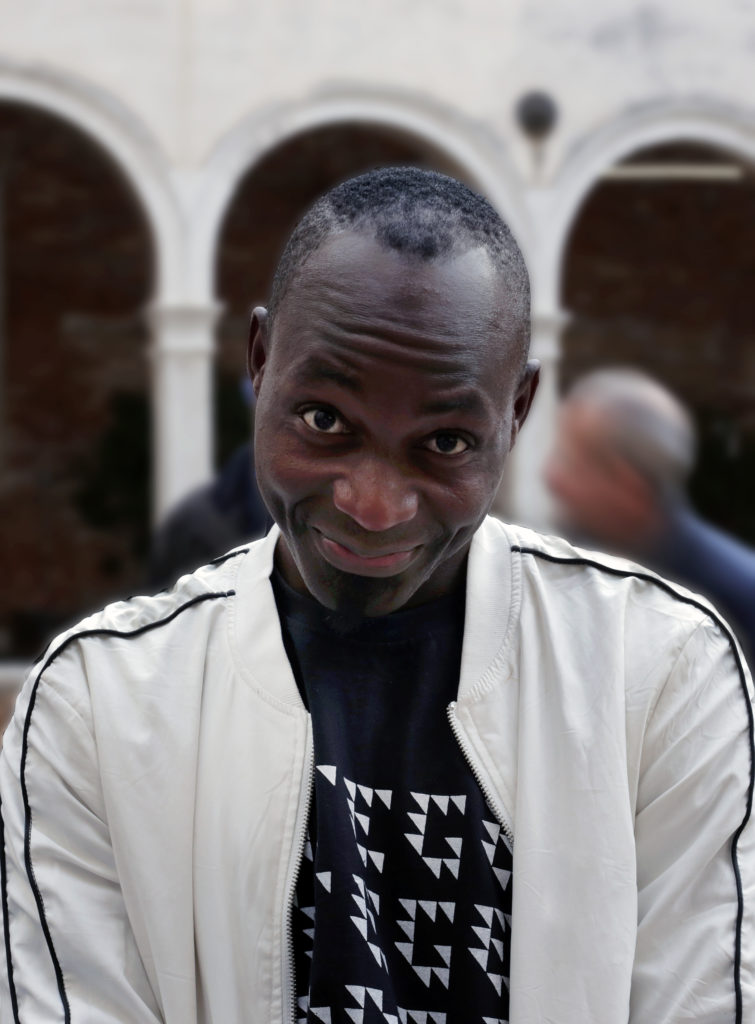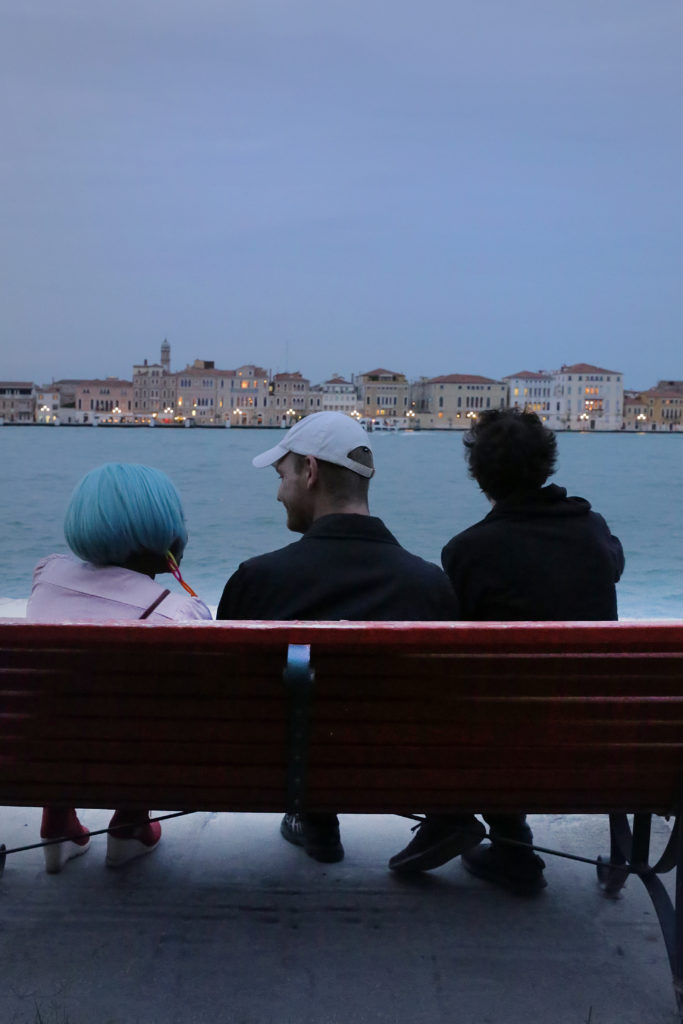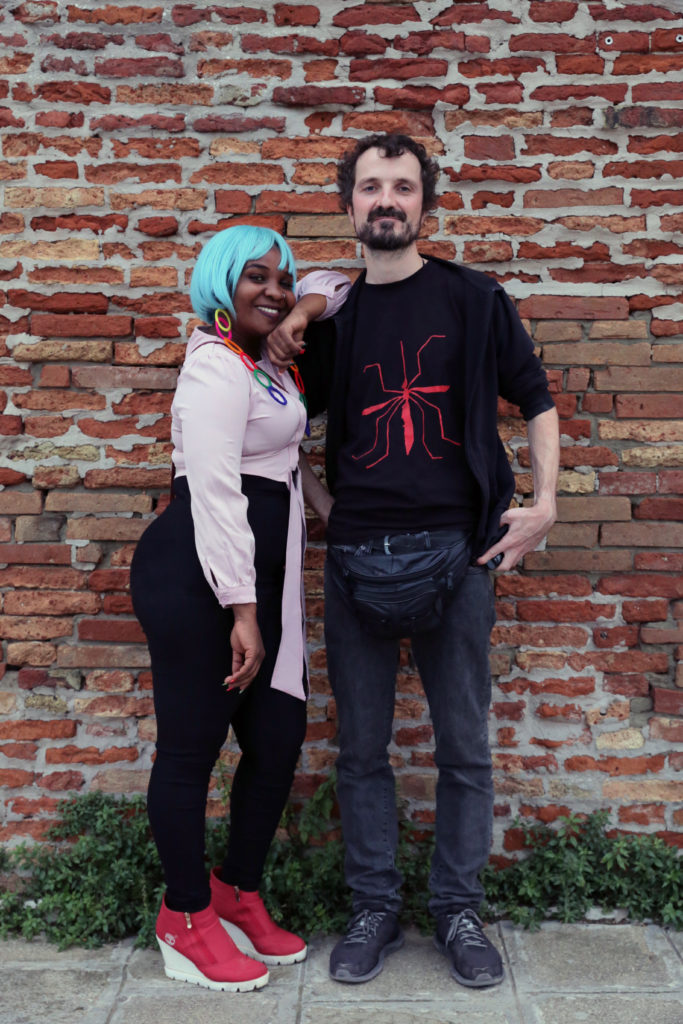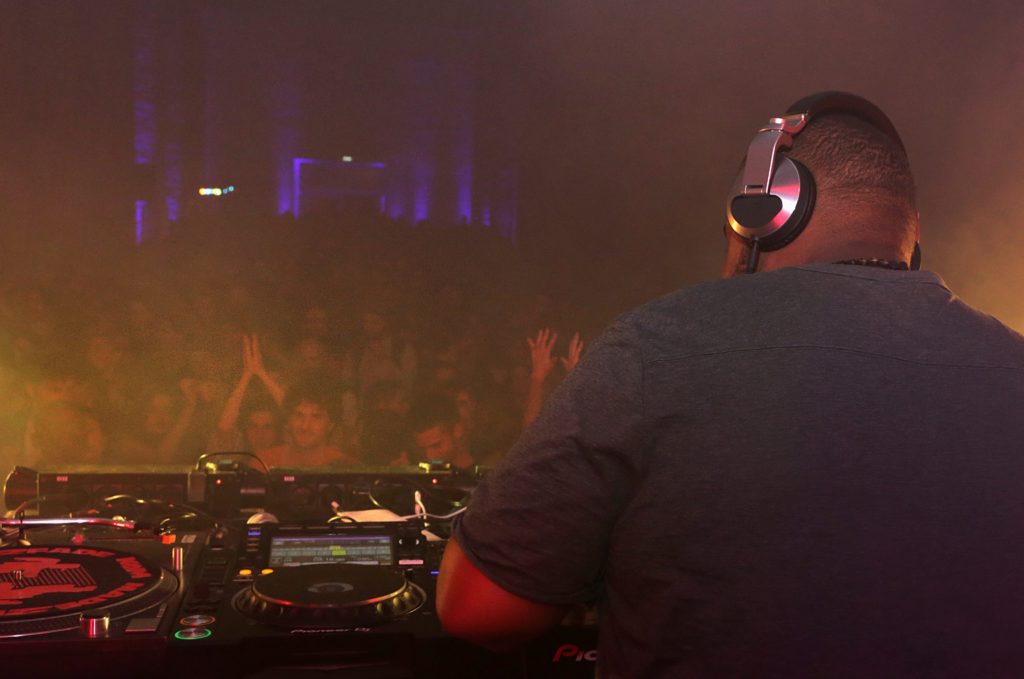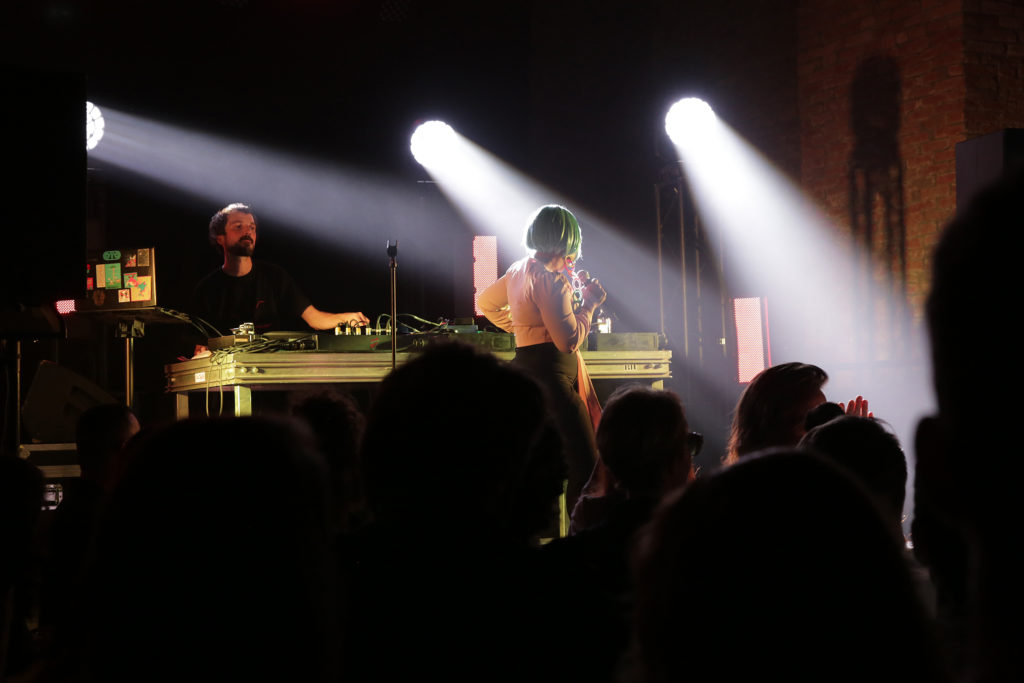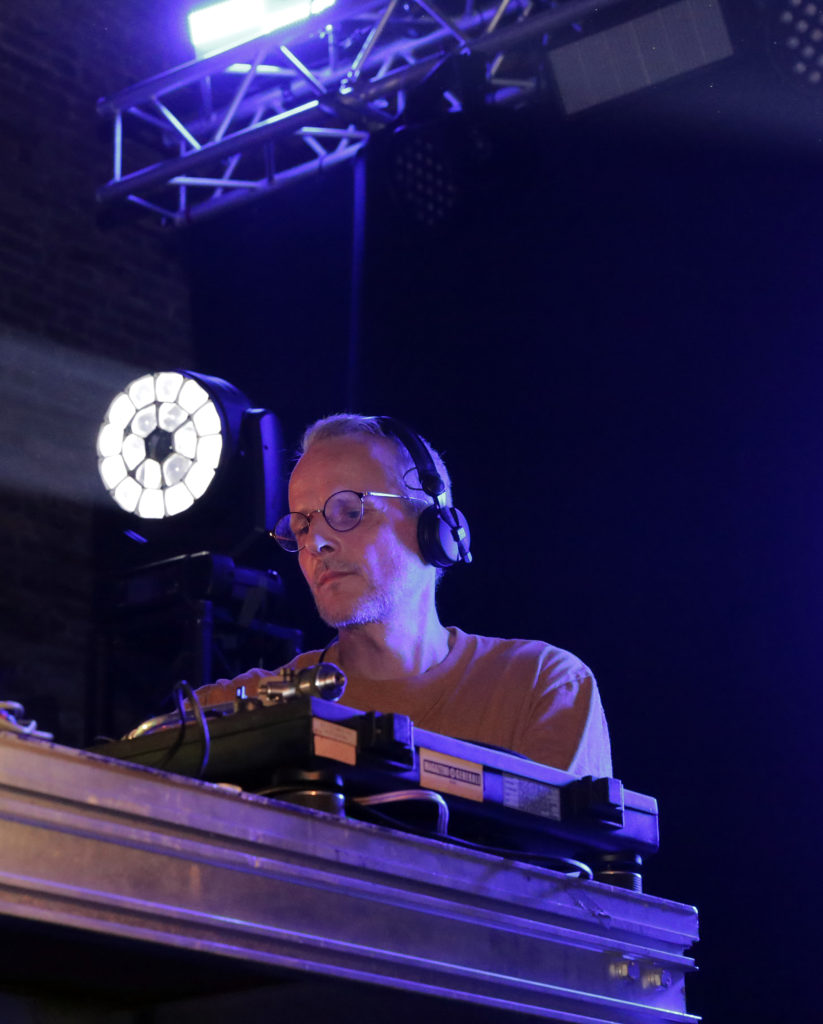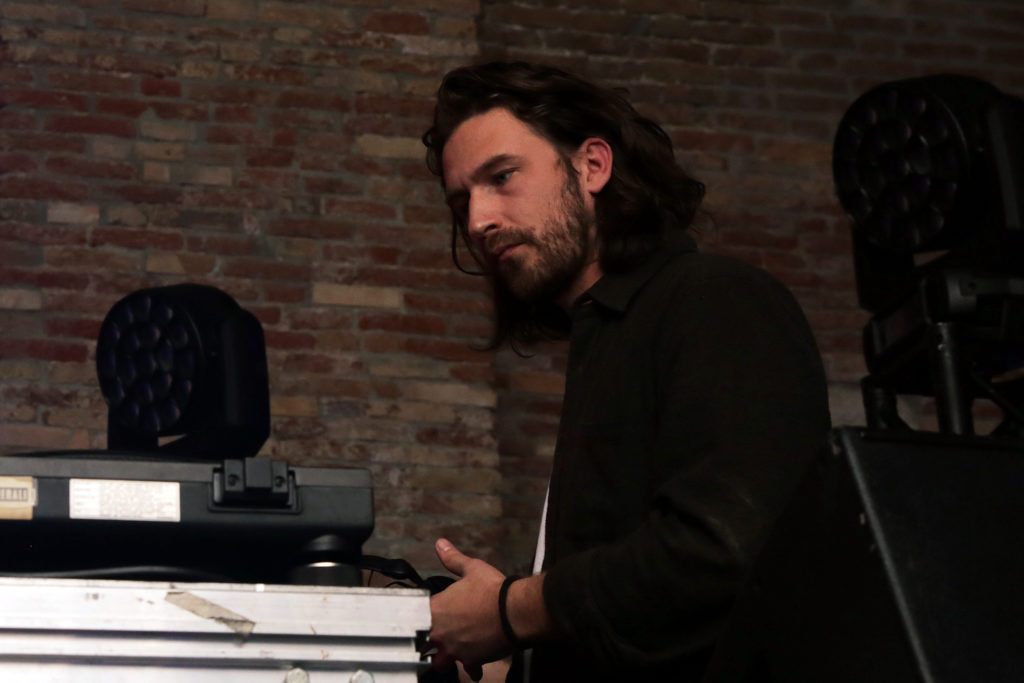A French producer, a Kenyan rapper and a German journalist sit on a bench overlooking Venice’s waterfront. What sounds like the beginning of a joke is, in fact, the overture for a night at Oficine 800, a slick event venue in the Giuedecca district of Venice. The Floating City is, of course, Biennial home turf and cultural offerings that happen next to the main event are often intertwined with it in one way or the other. This sentiment is also true for the night in question, which has been organized by the German pavilion and brings together a global arsenal of artists that push the limits of musical traditions and genres in myriad ways. Namely the bill consists of Gang of Ducks’ XIII, Lisbon’s batida pioneer DJ Marfox, German dance music innovator Errorsmith [see zweikommasieben #17], singeli producer Jay Mitta from Dar Es Salaam, and aforementioned Kenyan rapper MC Yallah and French producer Debmaster.
The latter duo just put out their debut album Kubali through Nyege Nyege Tapes’ sublabel Hakuna Kulala. Nyege Nyege, the Ugandan festival, label, and musical incubator founded five years ago by Arlen Dilsizian and Derek Debru, is also the diverse bill’s unifying element: all the acts either played the festival before or put out music through one of the associated labels, sometimes even finding each other because of the label’s initiative, as Julien Deblois aka Debmaster recapitulates on that bench in Venice: “MC Yallah and I got in touch, because I sent beats to Arlen Dilsizian from Nyege Nyege. Yallah came to the label’s Boutiq studio in Kampala one day, heard the beats, and wanted to rap on them. Our first EP, Ndi Mukazi, came together very fast and afterwards Arlen pushed us to continue working together on another EP that eventually developed to be the album.” Said album is an energetic affair that combines Uganda-based MC Yallah’s lyrics in Kiswahili and Luganda, Uganda’s main language, with Debmaster’s fragmented and detailed productions to something that could best be described as a juggernaut. It stutters, roars, and generally makes a lot of noise. Its power can be felt immediately. Also, it appears to be relatively uncompromised by trends. Yes, there is a contemporary feel to it, but especially MC Yallah’s vocals and delivery are as original as it gets. Stating this observation to her, she smirks, flipping her blue-dyed hair, her colorful 6-hoop earrings wiggling, and retorts: “Actually, I rarely listen to other music. I love listening to myself, because I want to perfect myself as MC Yallah. I think a lot of music is too predictable, especially in hip hop. Trap is trending right now, but it all sounds the same. Anybody can do it. For me, it was really important to try something new with Julien. Something that has not been done before and not a lot of people are already familiar with.”
Even though not a lot of people might be familiar with MC Yallah and Debmaster’s take on hip hop as well as the rest of the line-up at Oficine 800, a lot of people show up for the night. An artsy crowd that dresses up to get down. While people mingle, XIII sets the tone by, at least that is how he humbly describes his approach afterwards, “just playing some tunes” that oscillate between ambient soundscapes and slow, dubbed-out steppers.
The mood notably shifts after he finishes up and MC Yallah and Debmaster take the stage. Constantly hyping each other up, they rattle through the new album over the course of an hour. Debmaster plays live and occasionally whips out a modified Playstation controller to program and manipulate drum patterns on the fly. MC Yallah’s authority on stage is impressing, considering this being her first gig outside her home continent and the first show at all, in which she and Debmaster perform the new material. But given her experience, maybe this is not so surprising altogether. On the bench outside, in front of the venue, she explains her vita: “Many girls in Uganda have been inspired by me, because I am one of the famous rappers in the country. I started out when I was very young—with ten years. I slowly made my way into the music industry, but even then, I was still young, like 15 or 16. I have been doing this for over 15 years now.” Considering the term role model, I wonder aloud if she would describe the music as political or what she is doing as activism: “I have never really broken into the mainstream, because the mainstream in Uganda is dominated by boring music. Many good MCs in Uganda switched their style, because they had to make money and cater to the mainstream to do so. I decided to stick to the real hip hop underground, because that is what I was raised and grew up on. I listened to The Fugees, Lauryn Hill, Jay-Z, 2Pac, Biggie, and Queen Latifah. I stuck to it, because real hip hop is in my body. And I managed to make it my own, maybe that is activism.” Activism for her own cause, supported by other ambitiously forward-thinking people surrounding her. Nyege Nyege gets mentioned again as an important support network that respectfully leaves room for personal artistic development, while still being aware of developments in the global contemporary music scene. Label-co-boss Arlen Dilsizian, who is donning the merchandise table at the entrance of the venue all night, describes Jay Mitta’s sound as a combination of Mumdance [see zweikommasieben #11] and Lorenzo Senni[see zweikommasieben #18] for example.
After MC Yallah and Debmaster, DJ Marfox plays a set that provides a good snapshot of what keeps Lisbon’s dancefloors moving, before leaving the stage to Jay Mitta. Originally, he was supposed to be supported by MC Anti-Virus, one of the few female MCs in Tanzania, who unfortunately had to cancel last minute because of visa issues. A problem that often arises for artists from the African continent and provides to constantly be a looming bureaucratic obstacle. Tonight, this is a blessing in disguise, though, because MC Yallah steps in for a temporary on-stage collaboration that is uniquely fresh: Jay Mitta’s take on singeli relies on familiar-sounding pop samples from the 1990s as a structuring element in-between passages of very high-intensity and quick-fire beats. His performance feels a bit like a highly rewarding endurance test. Combined with MC Yallah’s improvised lyrical bits, the performance becomes something that is even bigger than the already big sum of its parts. Lastly, Errorsmith closes the night in familiar style, making the dedicated few stay on the dancefloor for a little bit longer. Including Debmaster, MC Yallah, and everyone else involved in organizing the night.
So, Nyege Nyege, what gives? The night and further research indicate: uncompromised creativity, a strong sense of community, an association with the “scene’s” right agents (to name a few: Boiler Room, Unsound Festival in Krakow, PR Agencies, magazines, as this article also proofs, and the aforementioned German pavilion in Venice), and a reputation for being an ambassador for contemporary music from Africa. All this makes the label, the festival, and the artists associated with Nyege Nyege stimulating cases to reflect on topics like musical origin stories, trends, transcultural collaboration, and, fundamentally, the global. Nyege Nyege allows for reflecting all this, but it also allows for just having a lot of fun, as the night in Venice made clear with its refreshing and imaginative takes on (dance) music.
